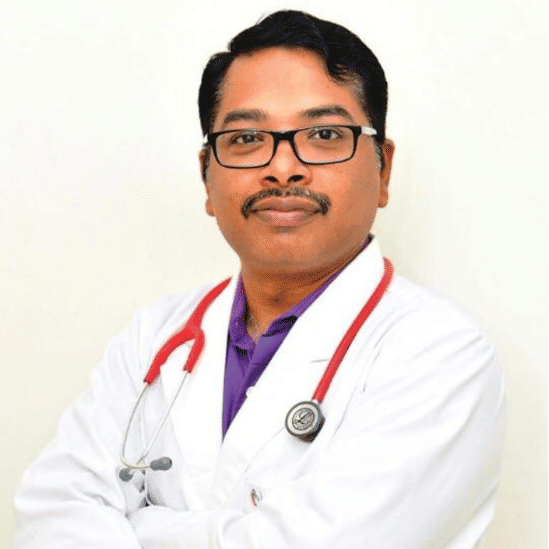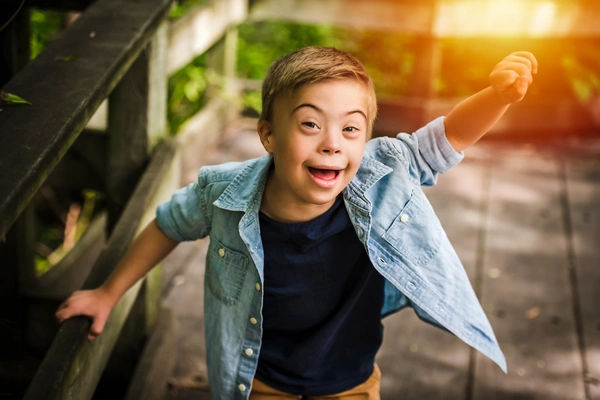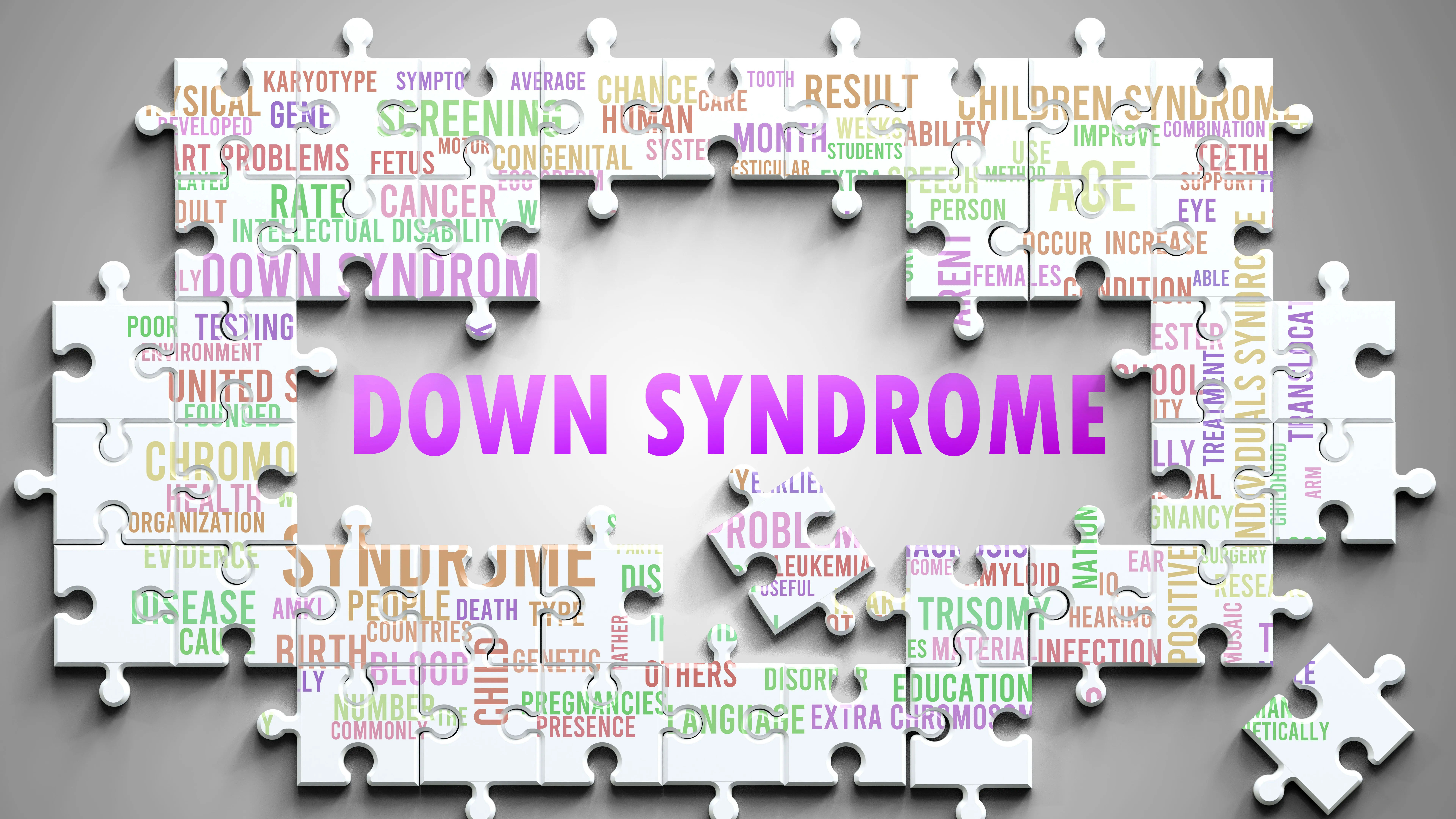Guide to Down Syndrome Awareness: Dispelling the Misconceptions
Learn the facts about Down syndrome and debunk common myths. This guide highlights the abilities, health considerations, and inclusion strategies to promote awareness of individuals with Down syndrome.

Written by Dr. Dhankecha Mayank Dineshbhai
Reviewed by Dr. Md Yusuf Shareef MBBS
Last updated on 13th Jan, 2026

Introduction
Down syndrome is one of the most common genetic conditions, yet it remains widely misunderstood. Syndrome awareness is not just about recognising its existence; it's about actively replacing outdated stereotypes with accurate, empowering knowledge. This pervasive lack of understanding fuels harmful misconceptions that affect individuals with Down syndrome and their families, creating barriers to inclusion, education, and healthcare. This guide is designed to move beyond the myths and provide a clear, factual foundation. We will dismantle common falsehoods, highlight the unique strengths and capabilities of individuals with Down syndrome, and emphasise the critical importance of proactive health management. By fostering genuine awareness, we can collectively build a more inclusive and informed society that sees the person first, not the diagnosis.
What is Down Syndrome? A Scientific Foundation
Down syndrome is a genetic condition that occurs when an individual has a full or partial extra copy of chromosome 21. This additional genetic material alters the course of development and causes the characteristics associated with the syndrome. It is crucial to understand that Down syndrome is not an illness or a disease; it is a naturally occurring chromosomal arrangement.
The Role of Chromosomes in Down Syndrome
Typically, a baby is born with 46 chromosomes. Babies with Down syndrome have an extra copy of one of these chromosomes, chromosome 21. The medical term for having an extra copy of a chromosome is ‘trisomy.’ Therefore, Down syndrome is also known as Trisomy 21. This extra chromosome affects how the baby’s body and brain develop, leading to both developmental challenges and physical features associated with the condition. Understanding this genetic basis is the first step in dispelling myths about it being caused by parental actions or environmental factors during pregnancy.
The Three Types of Down Syndrome
It’s a common misconception that there is only one type of Down syndrome. In fact, there are three:
- Trisomy 21 (Nondisjunction): This accounts for about 95% of cases. It occurs due to an error in cell division called “nondisjunction,” where the embryo has three copies of chromosome 21 instead of two.
- Translocation: This type accounts for about 4% of cases. In translocation, an extra part or a whole extra chromosome 21 is present, but it is attached or “trans-located” to a different chromosome rather than being a separate chromosome 21.
- Mosaicism: This is the rarest form, accounting for about 1% of cases. It occurs when there is a mixture of two types of cells, some containing the usual 46 chromosomes and some containing 47. The cells with 47 chromosomes contain an extra chromosome 21.
Consult a Specialist for the best advice
Debunking the Misconceptions About Down Syndrome
Myth 1: "Down Syndrome is a Rare Condition"
Fact: Down syndrome is the most common chromosomal condition. According to the Centers for Disease Control and Prevention (CDC), approximately one in every 700 babies in the United States is born with Down syndrome. This translates to about 6,000 births per year. This prevalence makes syndrome awareness all the more critical for public understanding and resource allocation.
Myth 2: "People with Down Syndrome Have Severe Intellectual Disabilities"
Fact: The intellectual disability associated with Down syndrome is usually mild to moderate. The range of cognitive ability is vast. Many individuals learn to read and write, graduate from high school, attend post-secondary education programs, and secure employment. With proper support, early intervention, and inclusive education, people with Down syndrome can achieve remarkable milestones and lead fulfilling lives, showcasing a wide spectrum of abilities and strengths.
Myth 3: "Down Syndrome is Hereditary and Passed Down Through Families"
Fact: In the vast majority of cases (about 95%), Down syndrome is not inherited. Trisomy 21 results from a random error in cell division during the formation of the egg or sperm or just after conception. The only type that can be hereditary is translocation Down syndrome, and even then, only about one-third of these cases are inherited. A genetic counselor can provide family-specific information, a service easily accessible through platforms like Apollo24|7.
Myth 4: "People with Down Syndrome Are Always Happy and Affectionate"
Fact: This is a harmful stereotype that generalises and dehumanises individuals. People with Down syndrome experience the full range of human emotions—joy, sadness, anger, frustration, and determination—just like anyone else. Labeling them as perpetually "happy" minimises their complexity and can lead to their very real feelings and moods being dismissed or ignored.
Myth 5: "Adults with Down Syndrome Cannot Live Independently or Hold Jobs"
Fact: This is one of the most outdated misconceptions. A growing number of adults with Down syndrome live semi-independently in group homes or with family, and some live entirely independently. They work in a variety of fields, including hospitality, retail, administration, and the arts. Companies are increasingly recognising the value, dedication, and positive attitude that employees with Down syndrome bring to the workplace.
Myth 6: "Down Syndrome is a Disease That Needs to Be Cured"
Fact: Down syndrome is a genetic condition, not a disease. You cannot "catch" it, and it does not need a "cure." The focus of the community is on providing quality healthcare, educational support, and community inclusion to help individuals reach their full potential—not on "fixing" them. Research is aimed at improving understanding and addressing associated health challenges, not eliminating the condition itself.
Myth 7: "All People with Down Syndrome Have the Same Personality and Traits"
Fact: Just as in the general population, every individual with Down syndrome is unique. They have their own personalities, talents, interests, and quirks. While they may share some physical features due to the genetic condition, assuming they all act the same is a profound oversimplification. One person might be outgoing and musical, while another might be shy and athletic.
Focusing on Abilities: The Strengths and Talents Often Overlooked
Amidst the focus on challenges, the incredible strengths of individuals with Down syndrome are often overshadowed. Many exhibit remarkable visual learning skills, strong empathy and social intelligence, and a determined spirit. They often excel in areas such as music, art, and athletics. By shifting the narrative from limitations to possibilities, we open doors. Raising a child with Down syndrome comes with unique joys, and celebrating every achievement, big or small, is key. Communities and schools that focus on these abilities foster environments where individuals can truly thrive, contributing meaningfully to society and enriching the lives of those around them.
The Importance of Inclusive Language and Attitudes
Awareness extends beyond facts into our everyday interactions. Language matters. Using person-first language (e.g., "a person with Down syndrome" rather than "a Down syndrome person") emphasises their humanity before their diagnosis. Avoiding outdated and offensive terms like "mongoloid" or "suffers from Down syndrome" is non-negotiable. Inclusion is an action. It means creating spaces—in schools, workplaces, and public areas—where people of all abilities are welcomed, valued, and given the opportunity to participate fully. This attitude shift is perhaps the most powerful tool in dispelling misconceptions for good.
Health Considerations and the Role of Proactive Care
While Down syndrome itself is not a disease, individuals may be at a higher risk for certain health conditions. Proactive and regular healthcare is essential for maintaining well-being and managing potential issues effectively.
Common Health Associations and Regular Check-ups
Common health issues can include congenital heart defects, hearing loss, obstructive sleep apnea, eye diseases, and thyroid conditions. Because of these associations, regular screenings and check-ups are vital. This includes annual hearing and vision tests, thyroid function tests, and monitoring for cervical spine instability, especially in childhood. Apollo24|7 offers convenient home collection for tests like thyroid panels (TSH) and HbA1c, making routine monitoring less stressful for families.
When to Seek Professional Medical Advice
Parents and caregivers should maintain a close relationship with a healthcare team familiar with Down syndrome. It is crucial to consult a doctor for any concerning symptoms, such as persistent sleep disturbances (which could indicate sleep apnea), changes in energy level or weight (pointing to potential thyroid issues), or any signs of respiratory or heart problems. If symptoms persist beyond two weeks, consult a doctor online with Apollo24|7 for further evaluation and to determine if an in-person visit is necessary. Early intervention is the best strategy for managing health.
Conclusion
Dispelling misconceptions about Down syndrome is a continuous process of education, empathy, and action. True awareness means moving beyond a single month of recognition and integrating understanding into our daily lives. It requires us to see the individual, celebrate their abilities, and support their challenges with accurate knowledge and resources. By challenging stereotypes, advocating for inclusion, and ensuring access to quality healthcare, we don't just improve the lives of individuals with Down syndrome; we enrich our entire community. Let’s commit to being a source of facts, not fiction, and to building a world where everyone has the opportunity to reach their full potential. Share this guide to help spread awareness and break down barriers.
Consult a Specialist for the best advice
Consult a Specialist for the best advice

Dr. Barnali Das. Senior Child Specialist
Paediatrician
24 Years • MBBS, DCH, PGT (SGRH, New Delhi),MRCPCH (United Kingdom)
Guwahati
Apollo Hospitals G S Road, Guwahati
(50+ Patients)

Dr. K. Rama Krishna Reddy
Paediatrician
15 Years • MBBS DCH (DNB)
Nalgonda
Apollo Reach Hospitals, Miryalaguda, Nalgonda

Dr Anita Arora
Paediatrician
40 Years • MBBS,DCH,MD(PAEDIATRICIAN)
Noida
Apollo Hospitals Sector 26, Noida

Dr Yaja Jebaying
Paediatric Gastroenterologist
9 Years • MBBS, MD PEDIATRICS, FELLOWSHIP PEDIATRIC GASTROENTEROLOGY AND HEPATOLOGY AND LIVER TRANSPLANTATION
Delhi
Apollo Hospitals Indraprastha, Delhi
(25+ Patients)

Dr. Prabin Prakash Pahi
Paediatrician
10 Years • MBBS, DCH, DNB Pediatrics
Bhubaneswar
Apollo Hospitals Old Sainik School Road, Bhubaneswar
(150+ Patients)
Consult a Specialist for the best advice

Dr. Barnali Das. Senior Child Specialist
Paediatrician
24 Years • MBBS, DCH, PGT (SGRH, New Delhi),MRCPCH (United Kingdom)
Guwahati
Apollo Hospitals G S Road, Guwahati
(50+ Patients)

Dr. K. Rama Krishna Reddy
Paediatrician
15 Years • MBBS DCH (DNB)
Nalgonda
Apollo Reach Hospitals, Miryalaguda, Nalgonda

Dr Anita Arora
Paediatrician
40 Years • MBBS,DCH,MD(PAEDIATRICIAN)
Noida
Apollo Hospitals Sector 26, Noida

Dr Yaja Jebaying
Paediatric Gastroenterologist
9 Years • MBBS, MD PEDIATRICS, FELLOWSHIP PEDIATRIC GASTROENTEROLOGY AND HEPATOLOGY AND LIVER TRANSPLANTATION
Delhi
Apollo Hospitals Indraprastha, Delhi
(25+ Patients)

Dr. Prabin Prakash Pahi
Paediatrician
10 Years • MBBS, DCH, DNB Pediatrics
Bhubaneswar
Apollo Hospitals Old Sainik School Road, Bhubaneswar
(150+ Patients)
More articles from Down S Syndrome
Frequently Asked Questions
Can people with Down syndrome get married?
Yes, absolutely. Many adults with Down syndrome form lasting romantic relationships, and some choose to get married. They are capable of experiencing deep love and commitment and, with the right support systems, can maintain successful partnerships.
What is the life expectancy for a person with Down syndrome?
Life expectancy has dramatically increased due to advances in medicine and social inclusion. In the early 1900s, it was under 10 years. Today, the average life expectancy for a person with Down syndrome is approximately 60 years, and many live into their sixties and seventies.
Are there specific learning strategies for children with Down syndrome?
Yes, children with Down syndrome often benefit from a multi-sensory learning approach, combining visual, auditory, and tactile inputs. They typically are strong visual learners. Individualised Education Programs (IEPs) in schools are designed to tailor learning strategies to their specific strengths and needs.
Is Down syndrome more common in pregnancies of older mothers?
While the chance of having a baby with Down syndrome does increase with maternal age, it is important to note that, because younger women have more babies overall, most babies with Down syndrome (about 80%) are born to women under 35.
How can I be a better ally to the Down syndrome community?
The best ways are to educate yourself, use respectful person-first language, challenge stereotypes and hurtful jokes when you hear them, support businesses that hire individuals with disabilities, and listen to and amplify the voices of self-advocates with Down syndrome.


